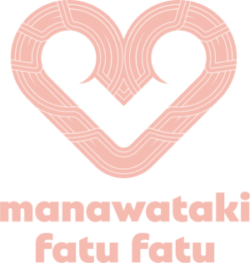Healthier Lives Newsletter September 2021
10 September 2021
In this issue:
- Heart Health Equity Hui Report
- Welcome to Professor Riyaz Patel
- Co-designing our way towards equity through authentic partnerships
- Structure of Healthier Lives’ research
- Scholarship and job opportunities
- Masters research in Population Nutrition – HYPE project
- Kaiwhakahaere Taituarā – Whakauae Research Services
Heart Health Equity Hui Report

In July, heart health researchers, clinicians, service providers and funders gathered at a national hui led by the Manawataki Fatu Fatu programme to discuss how to achieve equitable heart health outcomes in Aotearoa New Zealand.
The aim of the hui was to document current research and service delivery, develop a vision of what equitable service delivery looks like and, importantly, create a plan or ‘equity roadmap’ for moving towards it.
Hui participants identified eight major areas for action over the next year. Details are available in the recently released hui report.
Manawataki Fatu Fatu is a 3-year programme of translational research, led by Associate Professor Matire Harwood (Ngāpuhi) and Dr Corina Grey (Samoan) and funded by Healthier Lives and the Heart Foundation
Welcome to Professor Riyaz Patel

Healthier Lives warmly welcomes Professor Riyaz Patel to our International Science Advisory Panel.
Professor Patel, a professor of cardiology at University College London (UCL) and consultant cardiologist at UCL Hospital and Barts Health NHS trusts, joins a group of eminent international researchers advising Healthier Lives about our research strategy and the quality of our research.
Co-designing our way towards equity through authentic partnerships

This year’s University of Otago Spotlight Series focussed on the contribution that research can make to achieving health equity in Aotearoa. Healthier Lives Director Jim Mann spoke about the experience of co-designing research with Māori and Pacific communities within the Healthier Lives National Science Challenge.
Otago Spotlight Series: Achieving Health Equity from Research University of Otago
Recordings of the talks are available here.
A forthcoming report by independent evaluator Debbie Goodwin (Ngāi Tūhoe, Whakatōhea) explores the lessons Healthier Lives has learned about co-designing research.
The report’s release will be announced in a future newsletter.
Structure of Healthier Lives’ research
Each year we produce a diagram about the structure of Healthier Lives research for the Ministry of Business, Innovation and Employment (our funder). It sums up all the research and related activities going on across our Challenge in one page.
Scholarship and job opportunities
Masters research in Population Nutrition – HYPE project
A scholarship of up to $14,000 for Masters research in healthy and sustainable dietary practices and/or equity in relation to health sector food policies is available as part of the Healthier Lives’ HYPE (HealthY Policy Evaluation) project which is evaluating the National Healthy Food and Drink Policy.
Closing date: 11 October 2021
Find out more on the University of Auckland website.
Find out more about the HYPE (HealthY Policy Evaluation) project.
Kaiwhakahaere Taituarā – Whakauae Research Services
Whakauae Research for Māori Health and Development – the only iwi-owned Māori health research centre in Aotearoa – has a vacancy for an experienced Kaiwhakahaere Taituarā (Executive Assistant).
The position is Whanganui-based and the closing date for applications is 20 September 2021
More details are available on the Māori Pacific Jobs website.
Read more about Whakauae Research.
In the news
New co-medical directors for Cancer Society

Dr George Laking (Te Whakatōhea) and Dr Kate Gregory have been jointly appointed as Co-Medical Directors of the Cancer Society of New Zealand.
Outgoing Medical Director, Dr Chris Jackson, is co-principal investigator on a Healthier Lives project investigating the use of circulating tumour DNA to detect cancer.
Cancer Society appoints first female and Māori Medical Director Cancer Society
Sugar is damaging the health of an increasing number of people

Healthier Lives Director Professor Jim Mann spoke to Charmian Smith of the Otago Daily Times about the dangers of sugar to people’s health.
While a little bit of sugar occasionally may not be harmful to most people, the large amounts of it found in many processed foods, as well as sugar-sweetened drinks, is damaging the health of an increasing number of people.
Sugar is evil: science trumped but advice spot on Otago Daily Times
Significant equity gap in uplift of diabetes medication

A recent study confirmed a significant equity gap in the uplift of dispensed diabetes medication and argued that there needs to be a focus on helping people take their medication.
Dr Rawiri Jansen (National Hauora Coalition) pointed to the pilot of the Mana Tū programme, led by A/Professor Matire Harwood (University of Auckland), which “demonstrated that a nonregulated health worker role walking alongside whānau could make a difference in their management of long-term conditions, including diabetes.”
Diabetes drugs not reaching patients who need them NZ Doctor [subscriber content]
Covid-19 study shows need to prioritise high-risk groups

A recent study modelling the potential effect of Covid-19 vaccination programmes showed that targeting high-risk groups will result in lower hospitalisations and deaths in most scenarios.
Healthier Lives deputy director Andrew Sporle, a co-author on the study, said it remained critical to include strategies that ensured maximum protection for Māori and Pasifika, who were at higher risk for hospitalisation and death from Covid-19.
“Prioritising vaccinations for those most at risk of severe outcomes from Covid-19 infection – including Māori and Pasifika – benefits the whole population as well as protecting those groups.


